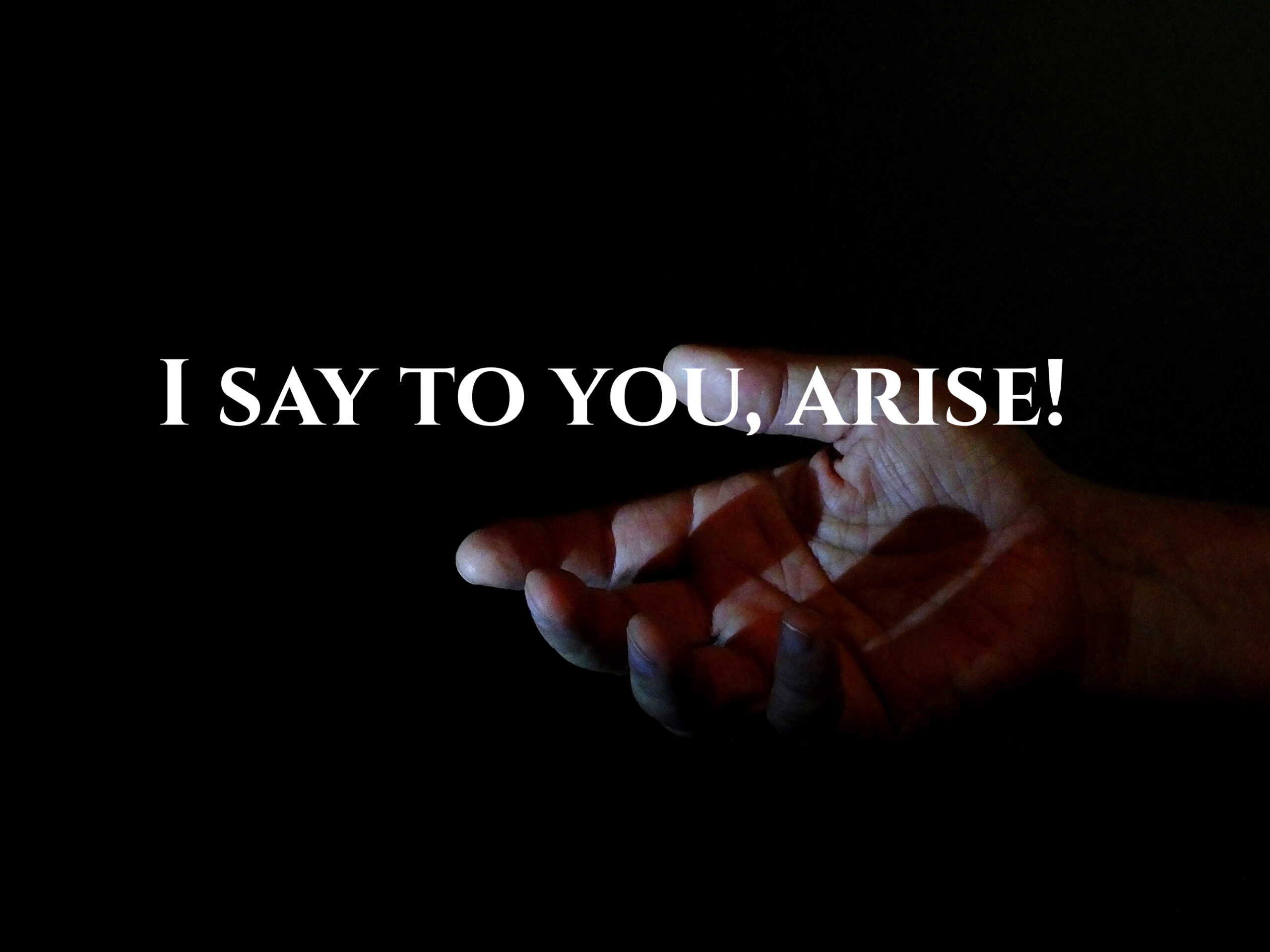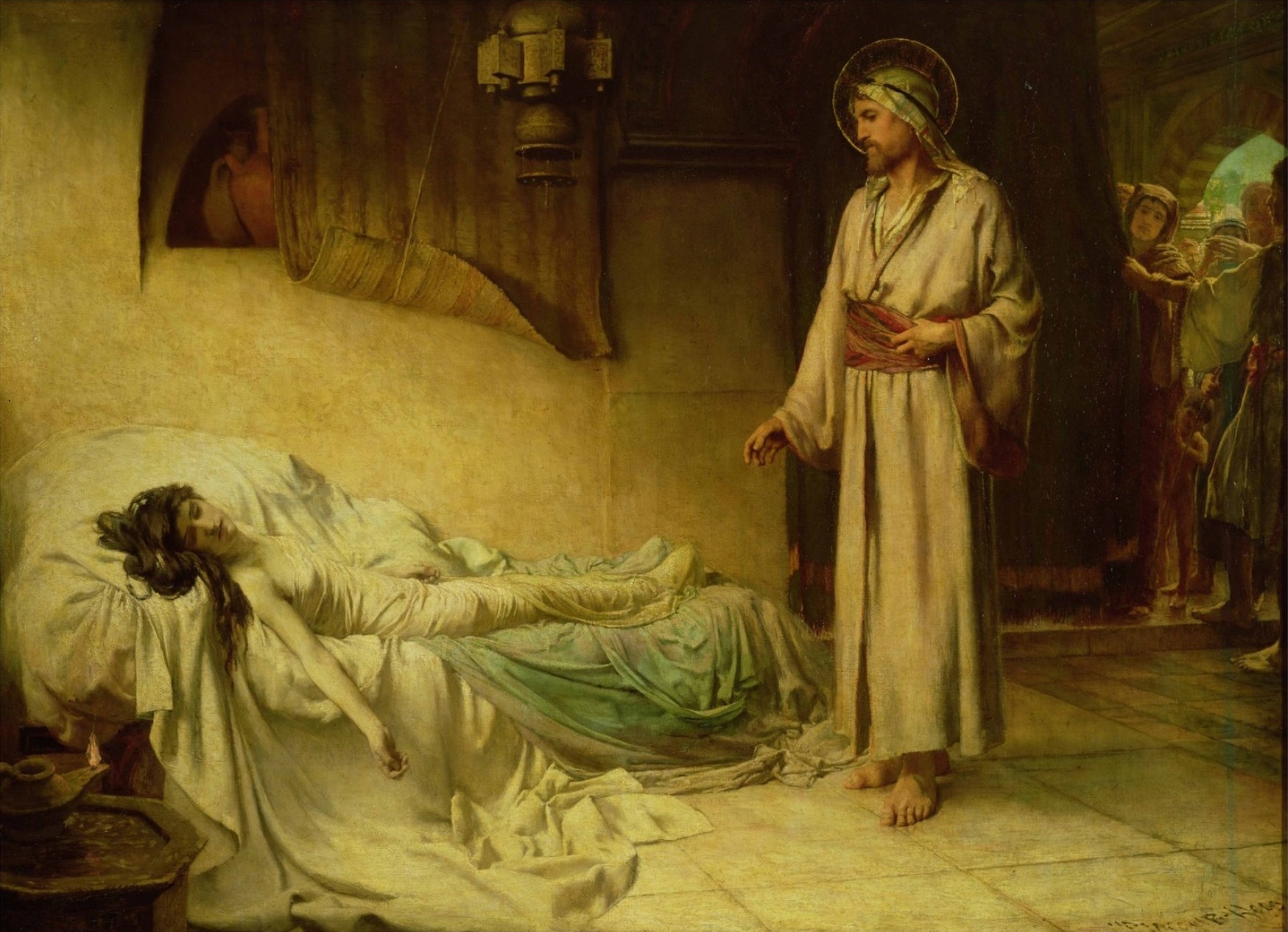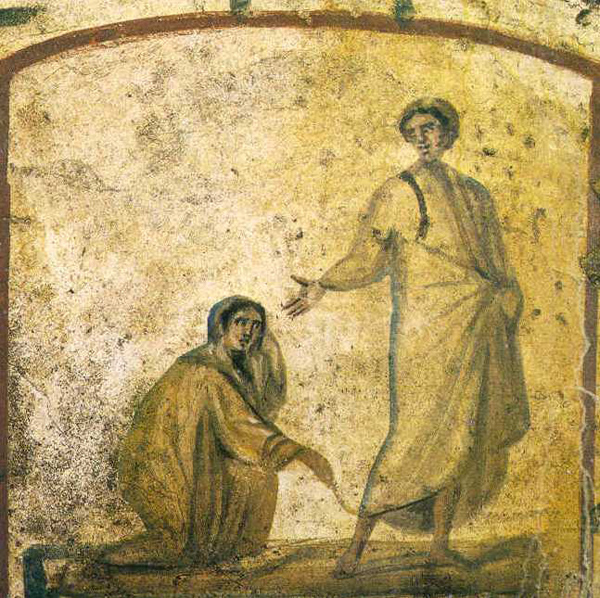In today’s Gospel, we have an awful lot of anguish. First is the anguish of Jairus, the synagogue official, whose daughter was near death when he reached out to Jesus. It becomes more distressing when, on the way to heal his daughter, they are confronted with the anguish of the hemorrhagic woman, who had been suffering for twelve years, at “the hands of many doctors,” who had apparently done nothing for her but take her money. Knowing that he had healed someone, he stopped to reach out to her so as to heal her spirit. All of which becomes even more distressing as they reach Jairus’s daughter, who has just died.
But Jesus is the enemy of death and anguish, so he heals the hemorrhagic woman, he raises the daughter of Jairus with a word of command, and he teaches us the essential truth that faith is essential to healing. The author of the letter to the Hebrews addresses the anguish of sin, urging us to “rid ourselves of every burden and sin that clings to us and persevere in running the race that lies before us.” That anguish can be a particularly overwhelming one to overcome, but the author assures us that we will be successful if we remember to keep “our eyes fixed on Jesus, the leader and perfecter of faith.”
The starting point for us then, as we bring this Word to our daily life, is to name the anguish. In the silence of our hearts, in the quiet places of this Mass and of our day, let’s all agree to make space to address the anguish. Unaddressed anguish merely festers and makes us sick. When we name the anguish, we can bring it to Jesus, who says that we, all of us children of God, are “not dead but asleep” and commands us to rise, and be given something to eat, as we approach the Eucharist today.
Whatever our anguish is today, let’s name it, bring it to God, and listen to Jesus say to us: “I say to you, arise!”



You must be logged in to post a comment.